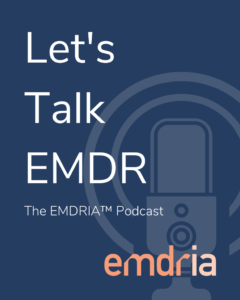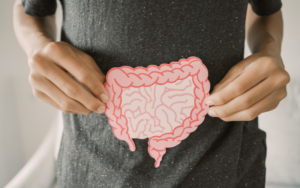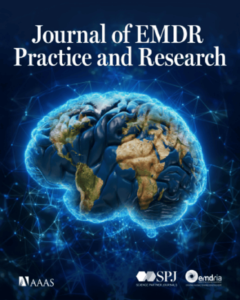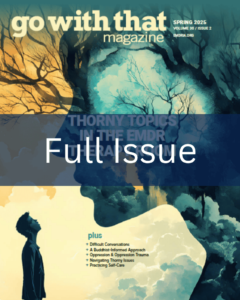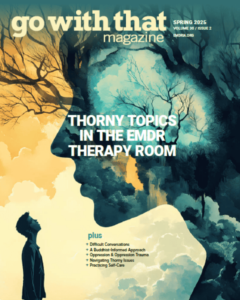EMDRIA Members Respond: Creating Understanding for Pride Month
EMDR therapists celebrate Pride Month by getting to know the challenges that this community might bring into therapy.
Read MoreResponse to: ‘A randomised controlled trial of eye movement desensitization and re-processing (EMDR) in forensic services and in prison’ – Letter to the editor (Medicine, Science and the Law)
A response to Every-Palmer et al. (2025) study welcoming continued dialogue for EMDR work in prison settings.
Read MoreRemote EMDR versus CBT for PTSD after the Kahramanmaraş earthquakes: a randomized trial (Figshare)
This RCT evaluated the comparative effectiveness of remotely delivered EMDR and CBT in treating PTSD and related symptoms among 89 adult earthquake survivors.
Read MoreEMDR Therapy for Anger Management
In this episode with Holly Forman-Patel, LMFT, LPC, we explore how EMDR therapy is used to help people understand & manage anger at its root.
Read MoreEMDR and the power, threat, meaning framework (EMDR Therapy Quarterly, 2025)
This article explores the Adaptive Information Processing (AIP) model of EMDR and the Power, Threat, Meaning Framework (PTMF).
Read MoreEMDR and Gut Health: Exploring the Connection
EMDRIA member Beth Thibault explores the connection between EMDR and gut health.
Read MoreEMDR Therapy, Cultural Humility, and the Healing Journeys of Migrant and BIPOC Families
Liliana Baylon, EMDRIA member, discusses rooting EMDR therapy in cultural humility when working with BIPOC and migrant families.
Read MoreA Reconnection Protocol for Grief: When the Love Lives On (Journal of EMDR Practice and Research)
This EMDR RDI protocol aims to help the griever proactively access positive memories of their loved one to facilitate a healthy connection.
Read MoreEffectiveness of eye movement desensitization and reprocessing (EMDR) therapy on selective attention and creativity in children with ADHD (International Journal of Education and Cognitive Sciences)
This study examines EMDR therapy’s effectiveness on selective attention and creativity in children with ADHD.
Read MoreThe Pressure to Be Nice: Women, Boundaries, and EMDR Therapy
This podcast episode explores women, societal expectations to “be nice,” and how these dynamics show up in the EMDR therapy room.
Read MoreThorny Topics in the EMDR Therapy Room (Go With That Magazine® Issue)
We examine the thorny, sometimes controversial topics that surface in EMDR therapy sessions and the ethics of confronting trauma head-on.
Read MoreCounselor’s Corner: Clients with Aphantasia
EMDR therapists respond to the question, “Who has experience treating trauma with EMDR for clients with aphantasia?
Read More



